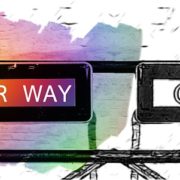Empathy: The Hidden Treasure
By Ellen Borowka, MA
[dropcaps type=”circle” color=”” background=””]E[/dropcaps]mpathy is essential to how we relate to others and to ourselves. How we respond to the feelings and needs of others as well as to our own. Yet for many people, empathy is frequently forgotten in the busyness of daily life. Many search far and wide for answers to their troubled relationships and troubled lives when the answer lies within them. Empathy is at the core of what we know as love and without empathy, love is empty and lifeless. What is passion, friendship, or  romance without empathy? It would be just a shell, a shallow expression without the depth of compassion. To understand this great treasure, we need to delve into what empathy is all about and what it means for you and me.
romance without empathy? It would be just a shell, a shallow expression without the depth of compassion. To understand this great treasure, we need to delve into what empathy is all about and what it means for you and me.
The dictionary defines empathy as, “…the capacity for experiencing as one’s own, the feelings of another”. In other words, empathy is a deep connection of heart to heart where one experiences another’s existence and reality in life. Empathy is the glue that bonds us together. There is an old saying that you cannot truly understand a person until you have “walked a mile in their moccasins” – until you can see what they see, hear what they hear, feel what they feel. This is not at all easy. We’d all like to think that empathy comes to us automatically, but it is a skill that needs to be practiced again and again. And in a world, where pain and anger is repressed and buried; where loving one’s self is for many a difficult or impossible task; where wounds and scars from the past seem to never heal – it can be very hard to have empathy not only for others, but even more for ourselves.
You may wonder what empathy has to do with relating to one’s self. Empathy cannot exist without both sides of the coin: how you relate to others and how you relate to yourself. Not only is it important to have empathy for others, but empathy for one’s self is even more vital. For self-empathy supports and activates empathy for others. There’s another old saying, “Love thy neighbor as thyself”. I used to hear that statement and think I could love my neighbor, but loving myself was impossible. I just couldn’t see anything worthy to love about myself. Yet, the problem is that if you can’t love yourself then it is very hard to truly love another. Why? How can you offer something to others, that you cannot give to yourself? Oh yes, we can care about others without loving ourselves, but this caring, this love, would be missing something. It would lack the depth, the sparkle, the realness of a great treasure – empathy. When one is unable to love one’s self then it is difficult to venture outside of our fragile world into someone else’s or extend compassion that we have not for ourselves.
So, where do we start to have empathy for ourselves and for others? Well, when we want to bake a cake or make lasagna, we usually look at what ingredients are needed. So, we’ll start by looking at the ingredients needed for empathy. I see empathy as having two main ingredients. The first is respect – respecting the needs, feelings, and thoughts of the other. Respecting the boundaries and the whole person of the other. It’s hard to have compassion for others, if there is little respect. It is the same for one’s self. It is important to have respect for yourself – your needs, feelings, thoughts and boundaries. That means taking care of yourself and your needs – valuing your feelings and ideas – keeping your boundaries strong, yet flexible with others. Patience is a big part of respect – being patient with another’s pacing and ways of doing things – being patient with your own pacing and how you do things. When you are patient, you are respecting the flow and the pathway of life.
The next is intimacy, which is a small word that means so much. The bottomline of intimacy is reaching out and risking the pain and perhaps rejection, that is part of human interaction. It means pulling down the defenses alittle to connect with another. The flip side is intimacy with one’s self where you reach inward to connect with your inner self. This again, can be painful for the inner self holds not only all the light and beauty of your being, but also carries the hurt and anger of the past. A big part of empathy is accepting and caring about the bad with the good in others and in ourselves. Intimacy not only involves connection and risk, but also the willingness to experience the feelings of others as well as our own feelings. To have intimacy and empathy, we have to be willing to feel the pain, the fear, the anger, and the sorrow inside and outside of us. None of this is easy – it takes great searching and resolving within.
Now that we have an idea of what empathy entails, we can look at some ways we can have it be a greater part of our lives. First, we’ll start with ways to develop empathy and love for yourself. Create a list of all your good qualities, skills and talents as well as your faults, flaws and imperfections. If you need help, especially with listing your good qualities, ask a  close friend for feedback. Then take the list and each day focus on a good and a “bad” quality. Here comes the hard part – try to love both qualities (easier said than done, huh?). Be proud, excited, and appreciative of your strengths, as you would be of someone else’s good points. Accept and have compassion and patience for your weaknesses. Again, you may need to ask a friend or a counselor to help you with this exercise. Self-love is not something that is modeled well in our society and families, so it takes lots of hard work and effort. Writing, art and music are all good ways to explore your qualities. Drawing, painting, collages, journeling, poems, stories, songs are helpful to describe and detail the process – the feelings, ideas and past/present events associated with both qualities. Try to see and understand how both qualities are a part of your character and needs love from you. This may begin to clear out self-hatred and allow self-love to blossom.
close friend for feedback. Then take the list and each day focus on a good and a “bad” quality. Here comes the hard part – try to love both qualities (easier said than done, huh?). Be proud, excited, and appreciative of your strengths, as you would be of someone else’s good points. Accept and have compassion and patience for your weaknesses. Again, you may need to ask a friend or a counselor to help you with this exercise. Self-love is not something that is modeled well in our society and families, so it takes lots of hard work and effort. Writing, art and music are all good ways to explore your qualities. Drawing, painting, collages, journeling, poems, stories, songs are helpful to describe and detail the process – the feelings, ideas and past/present events associated with both qualities. Try to see and understand how both qualities are a part of your character and needs love from you. This may begin to clear out self-hatred and allow self-love to blossom.
Once you have developed self-empathy then you are ready to work on empathy for others. A good way to practice this is by improving your listening skills. A good empathic listener talks very little and hears not only the words, but also what is beneath the words of another. Practice listening to others and paraphrasing what they say. This helps you to understand where they are coming from as well as validating their feelings. Try to be in their shoes – what are they feeling? What are they seeing? What is their life like? What have they dealt with in their life? Practice with a friend or loved one where you each take turns listening and validating each other. You’ll find these can be very deep and rewarding conversations. Empathy is a special treasure for as you give it away to others, you’ll discover even more will be given back to you.
Permission is needed from Lighthouse Consulting Services, LLC to reproduce any portion provided in this article. © 2014 This information contained in this article is not meant to be a substitute for professional counseling.
Ellen Borowka, MA, Senior Analyst of Lighthouse Consulting Services, LLC and her organization constantly remain focused on their mission statement – “To bring effective insight to your organization”. They do this through the use of in-depth work style assessments to raise the hiring bar so companies select the right people to reduce hiring and management errors. They also have a full service consulting division that provides domestic and international interpersonal coaching, executive onboarding, leadership training, global options for expanding your business, sales and customer service training, operational productivity improvement, 360s and employee surveys as well as a variety of workshops. Ellen has over 15 years of data analysis and business consulting experience and is the co-author of the books, “Cracking the Personality Code” and “Cracking the Business Code”. To order the books, please visit www.lighthouseconsulting.com.
If you would like additional information on this topic or others, please contact your Human Resources department or Lighthouse Consulting Services LLC, 3130 Wilshire Blvd., Suite 550, Santa Monica, CA 90403, (310) 453-6556, dana@lighthouseconsulting.com & our website: www.lighthouseconsulting.com.
Lighthouse Consulting Services, LLC provides a variety of services, including in-depth work style assessments for new hires & staff development, team building, interpersonal & communication training, career guidance & transition, conflict management, 360s, workshops, and executive & employee coaching. Other areas of expertise: Executive on boarding for success, leadership training for the 21st century, exploring global options for expanding your business, sales and customer service training and operational productivity improvement.








